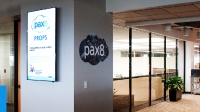How to engage millennials in the workforce
By
— August 12th, 2020

When it comes to engaging millennials in the workplace, organizations have a job to do. Today's millennials are the least engaged generation in the workforce. According to a Gallup poll over half (55% of millennials) are not engaged with work.
Within the workplace, this lack of engagement is reflected in lower productivity and a high turnover of staff. Beyond the workplace, poor engagement is costing the US economy $30.5 billion each year due to lost productivity.
By 2027, 487 million people will be added to the workplace with millennials comprising 75% of that figure ignoring the needs of this group of workers is not an option. Engaging these younger, tech-savvy, highly educated generation should be a priority for all organizations. The question is how to engage millennials in the workforce?
7 questions that empower workforce engagement
Dealing with millennials in the workplace
To get a sense of how to engage millennials, organizations not only need to understand millennials at work, they also need insight into millennials outside of work. Millennials are the ultimate consumers, and they bring that attitude to work. They consume work in much the same way they shop:
- They seek out reviews or referrals from social media
- They assess all aspects before committing to a purchase or a job
- They expect their purchase or job to fulfill them
- They want brands and managers to be accessible
- They have no real loyalty to brands or jobs and will switch brands or jobs without a second thought
By bringing this consumer attitude to work millennials have effectively disrupted the workforce. From internal communications and marketing to business processes, they have transformed how organizations approach almost every aspect of their business.
Organizations wishing to recruit, engage, and retain millennials need to understand what motivates them in a general sense, not just at work but in life. Millennials' work and life are seamlessly interlinked in ways we have not seen before with previous generations.
7 questions that empower workforce engagement
Problems with millennials in the workplace
As the ultimate consumers, millennials are constantly searching for the best deal or best fit for them. This mentality also applies to their jobs; millennials change jobs more often than any previous generation with six in 10 say they are currently looking for new employment opportunities.
To successfully retain millennials, organizations need to identify the core issues millennials may experience in the workplace.
- Millennials feel misunderstood and managers struggle to connect with or understand them
- Millennials want to feel like they are making a difference, they want a sense of purpose
- Millennials want to be challenged and crave personal/professional development
- Millennials eschew traditional employee/manager relationships, they want to be mentored
There's no avoiding the facts, millennials are job hoppers by nature and are difficult to retain. But employers can minimize employee churn by taking the time to understand the millennial mindset and using this knowledge to create a workplace that values and engages millennials.
How to engage millennials at work
With millennials poised to dominate the workforce in a few short years, it's important for organizations to prepare now. Here are a few key ways in which businesses can more actively engage with the millennial worker:
- Implement flexible work practices – whether that's remote working opportunities or simply by allowing a more flexible approach to employees' work hours
- Establish trust by not micromanaging them and consulting them on key departmental decisions
- Build a culture of openness and communication – millennials have expectations that their managers should be accessible and accountable
- Enhance corporate social responsibility programs. Remember, millennials want to make a difference and they want to use their work as a vehicle for change.
One factor that comes up regularly in articles about engaging the millennial workforce is education and ongoing development. A Gallup report says that 87% of millennials indicated that professional training and development are very important to them, and a recent Boston University survey showed that for 70% of millennials skills development is a deciding factor for them when choosing a job.
Millennials want to better themselves, either professionally through ongoing mentoring and career development, or personally, through acquiring softer skills such as managing conflict, communicating more effectively, or being more confident.
Winning over millennials might require dramatic re-thinking from the top down for most organizations. But truly engaging millennials at work is not only about creating a happy work environment; millennials are a highly educated, tech-savvy, passionate generation that has the potential to create real innovation. The organization that taps into the psyche of this generation, could gain a real competitive advantage.








